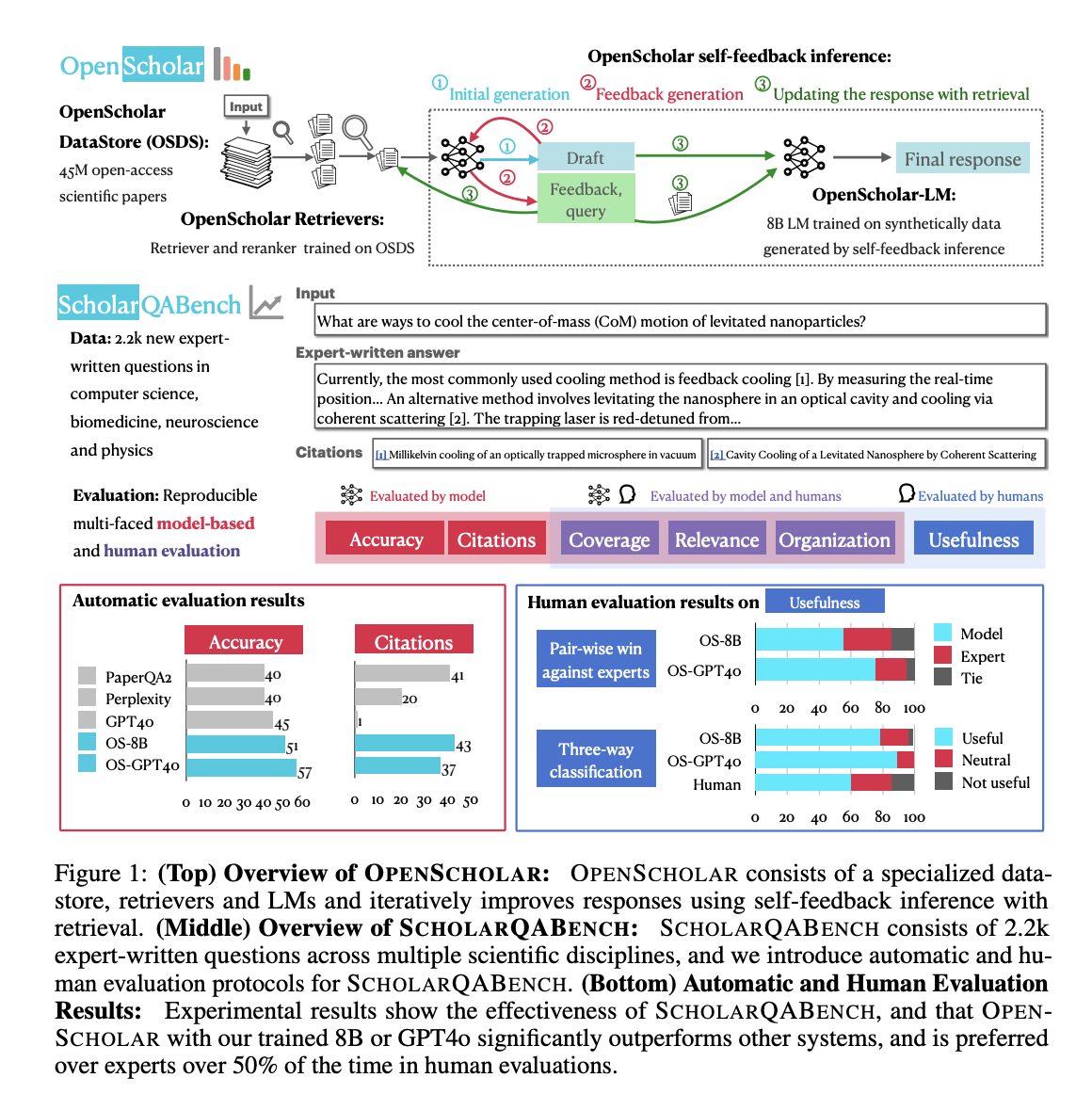
Understanding Scientific Literature Synthesis
Scientific literature synthesis is essential for advancing research. It helps researchers spot trends, improve methods, and make informed decisions. However, with over 45 million scientific papers published each year, keeping up is a major challenge. Current tools often struggle with accuracy, context, and citation tracking, making it hard to manage this vast amount of information.
The Challenge
Many general-purpose language models produce inaccurate citations, especially in fields like biomedicine, where errors can be as high as 78–98%. Researchers need reliable tools for accurate synthesis of scientific literature, as existing solutions are often limited to specific datasets or domains. This leads to inefficiencies and unreliable references, particularly in critical fields like biomedicine, computer science, and physics.
Current Solutions and Their Limitations
Current methods, like retrieval-augmented language models, try to combine external knowledge but often rely on small datasets. Tools like PaperQA2 and models like GPT-4 can improve citation accuracy but still face issues with reproducibility and discipline-specific limitations.
Introducing OpenScholar
Researchers from several prestigious institutions have developed OpenScholar, a retrieval-augmented language model designed for better scientific literature synthesis. OpenScholar accesses a vast database of 45 million open-access papers from Semantic Scholar, using advanced techniques for data retrieval.
Key Features of OpenScholar
- Multi-Stage Processing: It retrieves relevant passages, ranks them for relevance, and synthesizes responses while refining outputs iteratively.
- High-Quality Training: Trained on 1 million curated abstracts, generating 130,000 training instances for accuracy.
- Performance Validation: Outperformed GPT-4 and PaperQA2 in accuracy and citation correctness.
Results and Benefits
OpenScholar achieved a Citation F1 score of 81%, significantly reducing inaccuracies compared to general models. It also demonstrated cost efficiency, cutting computation costs by up to 50%. Human evaluations favored OpenScholar’s responses over expert-written ones 51% of the time, showcasing its effectiveness across various scientific domains.
Conclusion
OpenScholar represents a significant advancement in scientific literature synthesis, addressing the shortcomings of current tools. Its ability to provide accurate, efficient, and interdisciplinary solutions makes it a valuable resource for researchers navigating the complexities of scientific inquiry.
For more information, check out the paper, model on Hugging Face, and code repository on GitHub. Follow us on Twitter, join our Telegram Channel, and connect with our LinkedIn Group. For those interested in AI’s potential, don’t miss our FREE AI VIRTUAL CONFERENCE on December 11th.
Explore AI Solutions for Your Business
To leverage AI for your company’s growth, consider these steps:
- Identify Automation Opportunities: Find areas where AI can enhance customer interactions.
- Define KPIs: Ensure your AI initiatives have measurable impacts.
- Select an AI Solution: Choose tools that fit your needs.
- Implement Gradually: Start small, gather data, and expand wisely.
For AI KPI management advice, connect with us at hello@itinai.com. Stay updated on AI insights via our Telegram or Twitter.



























